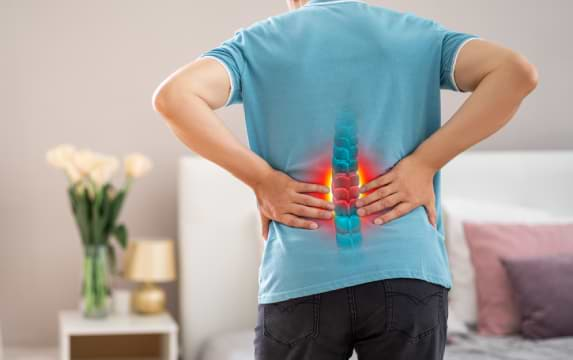בעיות בתפקוד המיני של הגבר הן נפוצות מאוד, אולם השימוש לסירוגין במונחים כגון ‘אימפוטנציה’ ו’הפרעות זקפה’ לתיאור של שתי הפרעות בתפקוד הקשורות זו לזו, אך אינן זהות, לעיתים יוצר בלבול. מהי אימפוטנציה, באיזה אופן היא שונה מהפרעות זקפה וכיצד היא משפיעה על הבריאות המינית של הגבר? כל התשובות במאמר שלפניכם.
תפקוד מיני תקין הוא מרכיב חשוב בחיי כל גבר. הוא מתקשר למצב הבריאותי הכללי, הנפשי, לקשר הזוגי ואף לביטחון העצמי. הפעילות המינית הגברית מערבת שילוב בין מספר מערכות בגוף, והורמונים ומסלולים עצביים שונים צריכים להיות בסנכרון מושלם כדי שהחשק המיני יתעורר. תקינות של כלי דם, מסלולים עצביים ומבנה הפין – כולם חיוניים ליצירת זקפה ולשימורה במהלך יחסי המין. שרירים ועצבים פועלים בקואורדינציה כדי שתתרחש שפיכה, שמושגת על ידי המעבר של הזרע מהאשכים לצינור השופכה. האורגזמה היא תופעה מורכבת בפני עצמה, שבחלקה נותרה מסתורית ואינה מובנת במלואה, ואף היא מערבת תזמון וסינרגיה בין איברים, מערכות, שרירים ומסלולים עצבים שונים.
במהלך החיים אמנם עשויים לחול שינויים בתפקוד המיני, כחלק משינויים תלויי-גיל טבעיים שהגוף עובר, אולם קיימים גם מצבים בהם מופיעה בעיה חריגה, שעלולה לקרות החל משלב ההתבגרות המינית, בין אם על רקע גופני או נפשי. חוסר תפקוד מיני יעלול להשפיע על איכות החיים, ולא פחות חשוב מכך, עלול להיות הסימפטום הראשון של בעיה גופנית או נפשית. לכן חשוב להתייחס אליו במלוא הרצינות, לאבחן אותן ולטפל בהן כראוי.
על ההבדל בין אימפוטנציה להפרעות זקפה
הפרעות בתפקוד המיני1 הגברי (Male Sexual Dysfunction) הן הפרעות הפוגעות ביכולת לקיים יחסי מין. כאמור, הן אינן מהוות מצב רפואי ספציפי אחד, אלא הן מוגדרות כהפרעה בכל אחד משלבי הפעילות המינית הגברית או באחד ממרכיביה:
- בחשק המיני/ליבידו (sexual desire),
- בעוררות המינית (sexual arousal) ובזקפה
- באורגזמה
- בשפיכת הזרע
בעבר היה מקובל להשתמש לסירוגין במונחים ‘אימפוטנציה’ (אין אונות) ו’הפרעות בתפקוד המיני’ כדי לתאר את מכלול הבעיות הנ”ל הקשורות לכל אחד משלבי הפעילות המינית (לרבות בעיות זקפה). אולם כיום המונח אימפוטנציה כמעט שאינו נמצא בשימוש רפואי, בגלל הקונוטציה השלילית שהוא עלול ליצור.
מתוך אותו מכלול של הפרעות בתפקוד המיני, המונח ‘הפרעות זקפה’2 מוגדר כשלעצמו כבעיה מתמשכת בהשגת זקפה נוקשה דיה לחדירה, כמו גם חוסר היכולת לשמר זקפה תקינה במהלך קיום יחסי המין.
הסוגים השונים של הפרעות בתפקוד המיני הגברי
את ההפרעות בתפקוד המיני הגברי מקובל לחלק לקטגוריות – על פי השלב בתגובה המינית בהן הן מתרחשות. הן יתוארו להלן בנפרד, למרות שמצבים רפואיים מסוימים עלולים לגרום ליותר מהפרעה אחת בתפקוד המיני:
הפרעה בחשק המיני (Hypoactive Sexual Desire Disorder)
ליבידו נמוך הוא מצב בו יש ירידה בחשק המיני, בדחף לקיים יחסי מין וגם במחשבות ובפנטזיות המיניות. אמנם שינויים בחשק המיני במהלך החיים הם נפוצים, אך כאשר יש חוסר חשק מיני מתמשך שמוביל להימנעות מקיום יחסי מין לאורך זמן, איכות החיים הזוגית יכולה להיפגע ולגרום לתסכול רב. כמו כן, ליבידו נמוך לאורך זמן עשוי להצביע על בעיה רפואית כלשהי, ולכן חשוב לבדוק זאת. להלן מספר גורמים שעשויים לגרום לירידה בחשק המיני:
רמות נמוכות של טסטוסטרון – טסטוסטרון הוא הורמון מין גברי שאצל גברים מיוצר באשכים ובבלוטת האדרנל. הוא חיוני לשמירה על החשק המיני, לייצור הזרע, לגירוי התפתחות איבר המין והאשכים, להגדלת מסת השריר והעצם, לשמירה על מצב הרוח ורמות האנרגיה, ועוד. הרמות של הורמון הטסטוסטרון עשויות להשתנות מעת לעת וזה תקין כל עוד הן נמצאות בטווח הנורמה, שהינו 8.4-27.5 ננו-מול/ליטר. ירידה תלוית גיל ברמות הטסטוסטרון היא נפוצה מאוד ונחשבת כחלק טבעי מתהליך ההזדקנות. לשם השוואה, בקרב 7% מהגברים בגילאי 40-60 יש ירידה ברמות הטסטוסטרון הכללי, זאת לעומת ירידה ברמות הטסטוסטרון בקרב 20% מהגברים בגילאי 80-60. אולם אם מתרחשת ירידה תלולה ברמות הטסטוסטרון, היא יכולה להוביל לירידה מתמשכת בחשק המיני. במקרים רבים טיפול הורמונלי חלופי בטסטוסטרון יתרום לשיפור החשק המיני, להנאה המינית לזקפה טובה ולסיפוק מיני.
הסיבות הנפוצות למחסור בטסטוסטרון הן גיל מבוגר, טראומה באשכים וגם השמנת-יתר (obesity). מעבר לכך, שינויים באיזון ההורמונלי בגוף עלולים להיגרם כתוצאה מתת-פעילות של בלוטת התריס, ממצבים הגורמים לרמות גבוהות של ההורמון פרולקטין, מטיפולים אונקולוגים (כימותרפיה והקרנות), מצריכה גבוהה של אלכוהול וקנאביס, מנטילת תרופות מסוימות (כגון תרופות להורדת לחץ דם, טיפול הורמונלי בסרטן בלוטת הערמונית, סטרואידים, משככי כאבים אופיואידים, סותרי חומצה, תרופות נוגדות דיכאון מסוימות, ועוד).
- מחלות כרוניות – כשמרגישים לא טוב לאורך זמן עקב בעיה בריאותית כרונית, לרוב מתרחשת ירידה מובנת בחשק לקיים יחסי המין. דוגמה מובהקת לכך הם כאבים כרוניים בגוף. 3 נוספים שעלולים להשפיע על הליבידו הם סוכרת, השמנת יתר, אי-ספיקת כבד, מחלות ריאה, לב, כליה, מחלות מעי דלקתיות, טרשת נפוצה, ועוד.
- הפרעות שינה – מחקרים4 הצביעו על כך שדום נשימה חסימתי בשינה עשוי להוביל לירידה בטוסטסטרון, בחשק המיני ובתדירות יחסי המין, גם בקרב גברים שלא סובלים מהשמנת יתר. מחקר5 נוסף מצא כי גם בקרב גברים צעירים ובריאים היתה ירידה בטסטוסטרון של 10-15%, לאחר שבוע של הגבלת השינה ל- 5 שעות בלילה.
- סיבות נפשיות ופסיכולוגיות – ידוע כי אנשים הלוקים בדיכאון חווים ירידה או חוסר עניין מוחלט בפעילויות שבעבר הסבו להם הנאה, כולל יחסי מין. אולם כאמור, ירידה בליבידו עשויה להיות גם תופעת לוואי של שימוש בתרופות נוגדות דיכאון, כגון סימבלטה ופרוזאק. סיבות נוספות כוללות מתח מתמשך, דימוי עצמי נמוך וחרדת ביצוע, בעיות בקשר הזוגי ועוד.
הפרעות בעוררות המינית (Male arousal Disorder) – הפרעות אלו מערבות קושי או חוסר יכולת להגיע לעוררות פיזית במהלך יחסי המין, כשהנפוצות מביניהן הן הפרעות זקפה6, השכיחות בפרט בגילאים המבוגרים יותר. בניגוד להפרעות בליבידו, גבר הסובל מהפרעות בעוררות המינית כן יחווה רצון ודחף לקיים יחסי מין. לקריאה נרחבת על הפרעות זקפה והגורמים להן . בניגוד להפרעות בליבידו, גבר הסובל מהפרעות בעוררות המינית כן יחווה רצון ודחף לקיים יחסי מין.
גורמי הסיכון השכיחים להפרעות זקפה כוללים בעיה בכלי הדם7 הגורמת להפחתת זרימת הדם אל הפין בגלל היצרות של העורקים, (לרוב על רקע גיל מבוגר, יתר לחץ דם, יתר שומנים בדם, טרשת עורקים, עישון או השמנת יתר), וכן פגיעה במערכת הורידים הגורמת לניקוז מהיר מידי של הדם מהפין. סוכרת, חוסר איזון הורמונלי (כגון ירידה בהורמון טסטוסטרון ועלייה בהורמון פרולקטין) כמו גם בעיות פסיכולוגיות, מהווים אף הם גורמי סיכון נפוצים להפרעות זקפה.
הפרעות בשפיכה – קיימים מצבים נפוצים, כגון חוסר יכולת לשלוט בשפיכה לפני החדירה, במהלכה או אחריה (שפיכה מוקדמת/מהירה), כמו גם מצבים שכיחים פחות המערבים זמן רב עד הגעה לשפיכה או חוסר יכולת להגיע לשפיכה.
שפיכה מוקדמת/מהירה (Premature/Rapid Ejaculation) היא הבעיה הנפוצה ביותר מבין הפרעות השפיכה (בפרט בגילאים הצעירים יותר), ממנה סובלים כ- 30% מהגברים במהלך חייהם. זה קורה כשהשפיכה מתרחשת תמיד או כמעט תמיד לפני או תוך דקה מהחדירה לנרתיק, כשהתוצאה פעמים רבות היא מצוקה, תסכול, חוסר סיפוק מהקשרים המיניים והימנעות מאינטימיות מינית. הסיבה לשפיכה מוקדמת אינה ברורה במלואה, אך ככל הנראה מעורבים בבעיה גורמים ביולוגיים, כגון תחושתיות יתר של הפין והפרעה בפעילות הקולטן של המוליך העצבי סרוטונין, וכן גורמים פסיכולוגיים כגון חרדה.
חשוב להבחין בין שפיכה מוקדמת ראשונית ומשנית. שפיכה מוקדמת ראשונית שכיחה מאוד בגברים צעירים, ומדובר בעצם בתכונה פיזיולוגית שגורמת לכך שמעט מאוד גירוי מיני יגרום לזקפה, לאורגזמה ולשפיכה. במקרים אלו הבעיה מתחילה כבר בפעמים הראשונות של קיום מגע מיני, ללא שינוי משמעותי לאורך השנים, אם כי עשוי להיות שיפור עם צבירת הניסיון המיני או כשיש זוגיות קבועה. שפיכה מוקדמת משנית אופיינית בגילאים מאוחרים יותר, בקרב גברים שהיתה להם שפיכה תקינה בעבר, אך בגלל מצבים מסוימים הם החלו לחוות שפיכה מוקדמת. למשל, חלק גדול מהגברים עם הפרעות זקפה חווים במקביל גם שפיכה מוקדמת, בעיקר בשל חרדת ביצוע. גורמי סיכון נוספים כוללים השמנת יתר, דלקת בבלוטת הערמונית, הפרעות בבלוטת התריס, גורמים גנטיים, מתח נפשי או חוויות מיניות טראומטיות וגם בעיות בזוגיות. בשנים האחרונות פותחו תרופות ומשחות למריחה, שיחד עם טיפול פסיכו-סקסולוגי, לרוב משפרים מאוד את המצב.
שפיכה מעוכבת וחוסר שפיכה הם מצבים הרבה פחות שכיחים שיכולים לגרום למצוקה עבור שני בני הזוג. הסיבות לכך כוללות חוסר עוררות מינית כלפי בן/בת הזוג, בעיות רפואיות כגון סוכרת (עקב פגיעה עצבית), בעיות בשלפוחית השתן או ניתוח בבלוטת הערמונית (שעשויים לגרום לשפיכה “לאחור” – אל שלפוחית השתן – מצב בו כן חווים אורגזמה), שימוש בתרופות (כגון נוגדי דיכאון ותרופות להורדת לחץ הדם), וכן אוננות מופרזת ורמות מתח גבוהות. גם במצבים אלו, טיפול פסיכו-סקסולוגי וטיפול תרופתי יכולים בהחלט לסייע.
הפרעות באורגזמה (Male Orgasmic Disorder) – זהו מצב שאינו שכיח, בו יש קושי מתמיד להגיע לאורגזמה8 לאחר גירוי מיני הולם. הגורמים לתופעה כוללים מחלות כגון זיהום בנגיף HIV וטרשת נפוצה, וכן נוירופתיה סוכרתית, סיבוכים כתוצאה מניתוחים באזור איבר המין, חבלה באגן, נטילת תרופות (כגון נוגדי דיכאון ותרופות להורדת לחץ דם) ובעיות פסיכיאטריות שונות.
[1]↩ American Psychiatric Association (APA). Diagnostic and Statistical Manual of Mental Disorders, 5th Ed. Washington, DC: APA, 2013.
[2]↩J.B. Teoh, A. Yee, M. Danaee, C.G. Ng, A.H. Sulaiman Erectile dysfunction among patients on methadone maintenance therapy and its association with quality of life J. Addict. Med., 11 (1) (2016), p. 40
[3]Cindy M. Meston & Amelia M. Stanton. Hypoactive Sexual Desire Disorder. TEXAS.
[4]Alonço Viana, MD, MS, Ana Carolina Daflon, MD, Arnaldo Couto, PD, PhD, Denise Neves, MD, PhD, Maria Helena de Araujo-Melo, MD, PhD, Robson Capasso, MD. (2017). Nocturnal Hypoxemia is Associated With Low Testosterone Levels in Overweight Males and Older Men With Normal Weight. Journal of Clinical Sleep Medicine, Vol.13 Issue 12.
[5]Rachel Leproult, PhD and Eve Van Cauter, PhD. (2015). Effect of 1 Week of Sleep Restriction on Testosterone Levels in Young Healthy MenFREE. National Library of Medicine, JAMA. 2011 Jun 1; 305(21): 2173–2174. doi: 10.1001/jama.2011.710
[6]Rösing, D; Klebingat, KJ; Berberich, H J; Bosinski, H A G; Loewit, K; Beier, K M. Male Sexual Dysfunction: Diagnosis and Treatment From a Sexological and Interdisciplinary Perspective (2009). Dtsch Arztebl Int 2009; 106(50): 821-8. DOI: 10.3238/arztebl.2009.0821
[7]Jeffrey S. Simons & Michael P. Carey, (2001). Prevalence of Sexual Dysfunctions: Results from a Decade of Research. Archives of Sexual Behavior volume 30, pages 177–219. doi: 10.1023/a:1002729318254
[8] Gandaglia G, Briganti A, Jackson G et al. A systematic review of the association between erectile dysfunction and cardiovascular disease. Eur Urol. 2014 (65):968-978.
החברה מבהירה בזאת כי המידע הכלול באתר הינו למטרות מידע בלבד, ואינו נועד להוות תחליף לייעוץ רפואי ובריאותי מקצועי ואינו מהווה ייעוץ או חוות דעת רפואית. פנה תמיד לייעוץ אצל הרופא שלך או גורם מוסמך אחר בכל מצב רפואי או שאלה שיש לך לגבי מצבך הרפואי.





